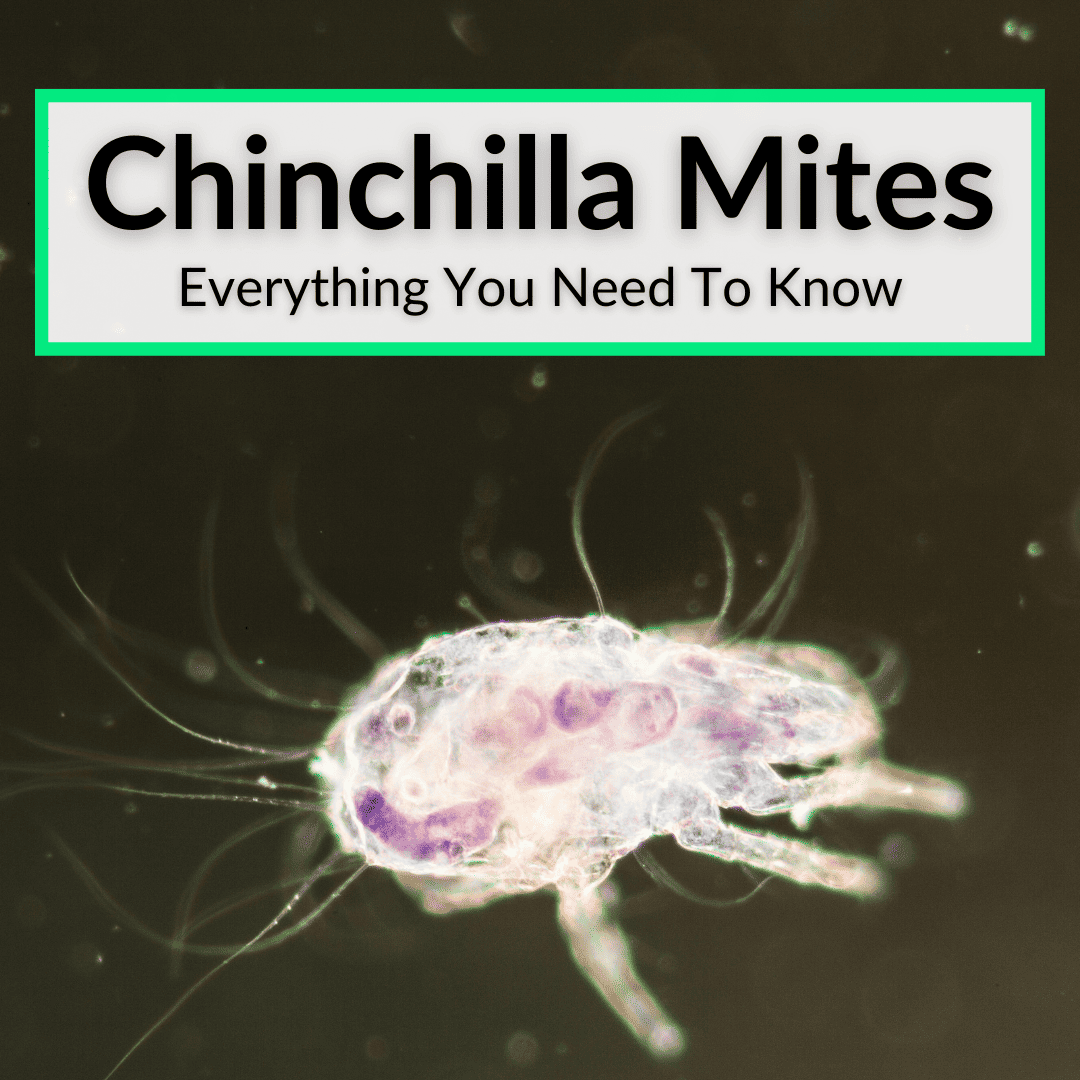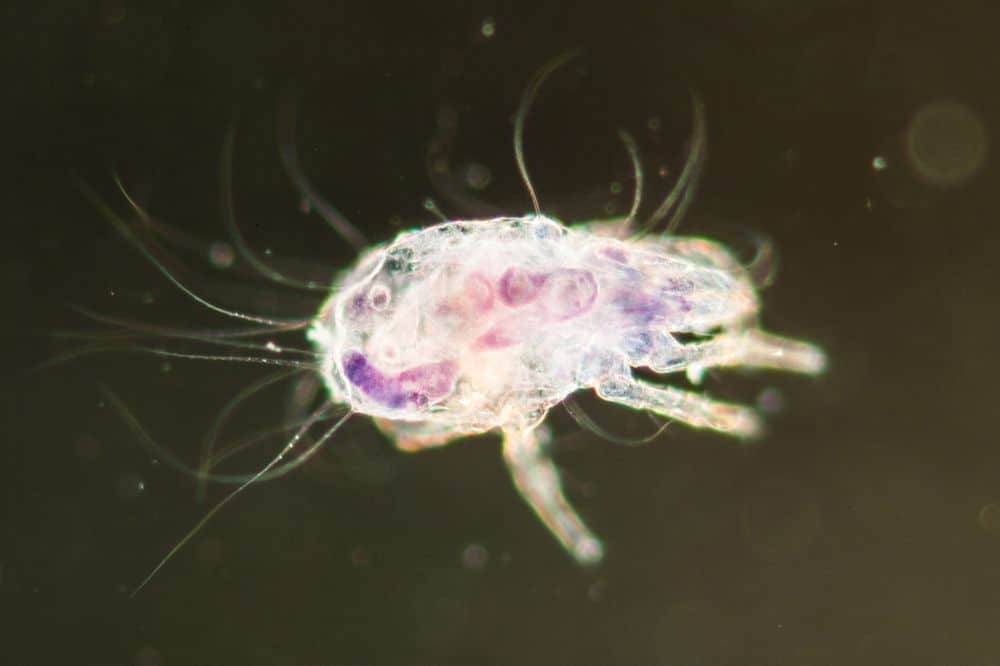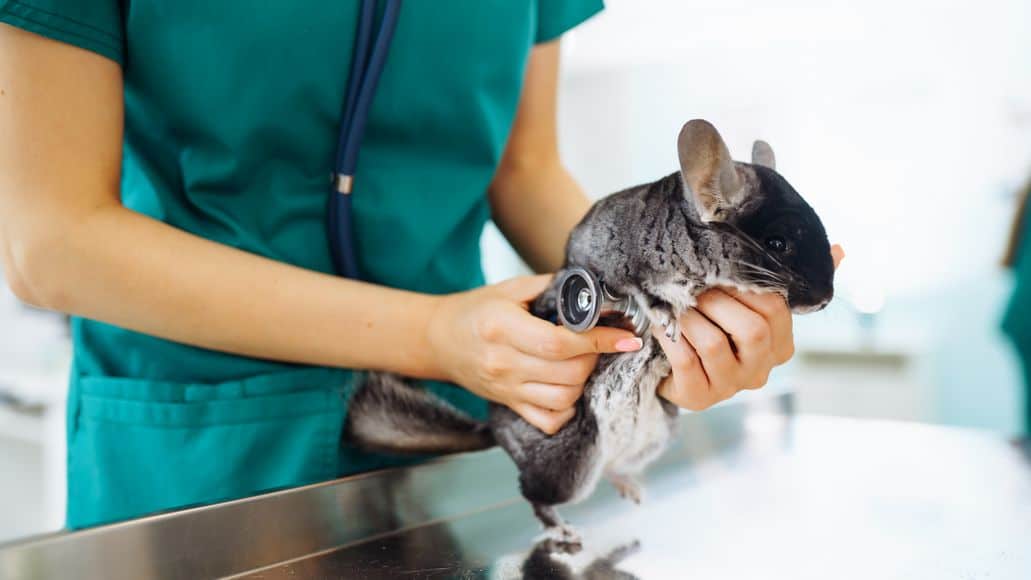
We want our little fluffballs to be happy and healthy.
And you can’t be happy with microscopic parasites sucking your blood.
That causes extreme discomfort.
But discomfort is far from the only problem chinchilla mites can cause.
Keep reading to learn all about these pests and why they can be so dangerous. We will also cover how to recognize mites on your chinchilla and what to do about them.
Contents
Chinchilla Mites
If you own a chinchilla, you know how important it is to keep them healthy and happy. Unfortunately, a common health concern for chinchillas is mites.
Chinchilla mites can cause a lot of discomfort for your furry friend, so it’s important to understand the symptoms, causes, and treatment options, so you can keep your chinchilla healthy.
What Are Mites Exactly?

Mites are tiny, wingless ectoparasites with eight legs. They belong to the Arachnid family. They are found on the fur and skin of chinchillas, where they feed on their blood.
Chinchilla mites are tiny parasites that live on the skin of your chinchilla. These mites can cause a range of problems, from mild itching to more serious issues like hair loss and skin infections.
There are a few different types of mites that can affect chinchillas, including fur mites, mange mites, and ear mites. These parasites can cause secondary infections if left untreated, making the situation even worse for your chinchilla!
Symptoms
Mites can cause a wide range of symptoms, ranging from mild to severe. The symptoms of chinchilla mites can vary depending on the type of mite and the severity of the infestation. Some common symptoms include itching, scratching, hair loss, dry ears, flaky skin, redness and scabs.
If you notice any of these symptoms in your chinchilla, I would suggest getting it checked out by a vet as soon as possible.
Causes
Chinchilla mites are typically spread from animal to animal through direct contact. They can also be spread through sharing bedding, toys, or other items that have come into contact with an infected chinchilla. Chinchillas that are kept in dirty or overcrowded conditions are more likely to develop mite infestations.
Treatment

If your chinchilla has been diagnosed with mites, there are a few different treatment options available. Your vet may recommend topical medications, injections, or oral medications to help kill the mites and alleviate symptoms.
It’s also important to thoroughly clean your chinchilla’s living space and any items that may have come into contact with the mites to prevent re-infestation.
One of the most recommended treatments for chinchillas with mites is ivermectin, which is available in both topical and injectable forms. The topical formula is applied directly to the skin at the base of the fur, while the injectable formula is administered in small doses. However, it’s crucial to note that ivermectin should only be prescribed by a qualified veterinarian, since an overdose can be fatal.
Preventing Mites
The best way to prevent chinchilla mites is to keep your chinchilla’s living space clean and free of pests. Regularly cleaning the cage, providing fresh bedding, and keeping food and water sources clean can help prevent mite infestations.
It’s also important to keep your chinchilla away from other animals that may be infected with mites. A chinchilla’s diet plays a significant role in its overall health.
Proper nutrition is essential for maintaining a healthy immune system, which can help prevent mites. It’s best to avoid sugary and fatty foods and to provide your pet with a high-quality pellet diet supplemented with a steady supply of hay.
Mites And Humans

Chinchilla mites are not contagious to humans but may cause an itchy sensation on the skin, accompanied by a rash or redness, if transferring from an infected chinchilla.
However, they cannot establish themselves in human skin or hair, so it’s easy to get rid of them with good cleaning and personal hygiene. That said, you should still try to avoid close contact with infected chinchillas, since it can cause the transfer of mites.
Mites On Chinchillas: Final Thoughts
Chinchilla mites are annoying little pests that can cause your pet extreme discomfort. If you do not deal with them, they can end up causing much worse health problems.
If you notice your pet scratching more than usual or other potential signs of mites or other parasites, inspect your pet’s skin and fur to see if you can detect any mites. If so, get your chin to the vet. If not, but it is obvious something is bothering your chinchilla, you should take it to the vet, too, just to be safe.
Leave a Reply